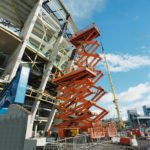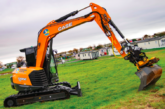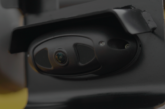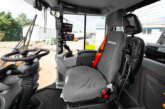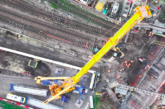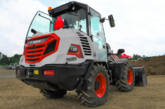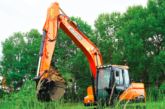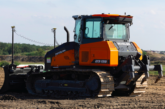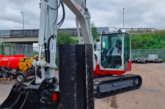According to a report compiled by HSE, falls from a height were the most common cause of fatal accidents for workers in 2017/18, with construction being the main industry in which fatal injuries occurred.
The correlation between these two findings means that ensuring employees have access to, and can safely operate powered access equipment is more important than ever. The first step to reducing fatal accidents due to working at height within the construction sector is to ensure that machinery is regularly serviced and maintained.
Not only will regularly maintaining your equipment keep your workers safe, it will also extend the lifetime of your equipment by contributing to the efficient running of your powered access platforms.
AFI Resale, specialist provider of access platforms, offers advice on best practices for maintaining your machines to significantly extend their lifespan and more importantly, to enhance workplace safety:
Daily access platform pre-start inspection
Before use, all operators must conduct a pre-start inspection to ensure that the machine is in good working order. All checks should be conducted in accordance with the manufacturer’s manual and must include both visual and functional checks.
Reporting of defects or problems
It is critical that an efficient system is put in place to allow workers to actively record any defects or issues which they come across when inspecting the MEWP. It is common practice for operators to report defects and record any faults on the daily pre-start inspection checklist. This must be followed up by reporting it to a supervisor.
The recording of all defects should be acknowledged and resolved within a timely manner. MEWPs should not be used if there is even a small chance that it is not safe or fit for use. Not only does a defected access platform put employees in danger, it is also a risk to other persons, employees and members of the public too.
Regular inspections
Consistent checks should be carried out on machinery to ensure they are not deteriorating to an extent where it is unfit for use. There are many aspects that could affect the fair wear and tear of a powered access platform, including but not limited to; operating environment, intensity of use and the operator’s experience. It is imperative to quickly carry out the replacement of any worn parts.
Regular inspections of machinery should be a part of your organisation’s risk assessment and should align with manufacturers’ recommendations.
Regular examinations
All powered access platforms must be thoroughly examined at a minimum of every 6 months by a competent person and in accordance with an examination scheme. The Lifting Operations and Lifting Equipment Regulations (1998) often referred to in the industry as a LOLER, is a legal requirement and is like an MOT for a car. It ensures that the access platform is suitable and safe for use. This examination is different to a pre-start check and inspection as it is more detailed and covers aspects such as if the machine is structurally sound and functioning correctly.
Be sure to schedule lubrication maintenance too, as this will extend the life of MEWP equipment and parts by reducing friction. High temperature could be a sign of friction, which could be due to a leak around an oil seal, which would then need to be investigated further.
Maintenance schedule and logs
Although not a legal requirement, maintenance logs are a solid foundation and a useful document to inform maintenance personnel of previous activities and also help forward planning of maintenance.
Maintenance should only be carried out by individuals who are trained and competent to do so. Relevant thorough examination certificates should always be retained by the company utilising the machine and kept in a safe place which is accessible to individuals operating the MEWP.

